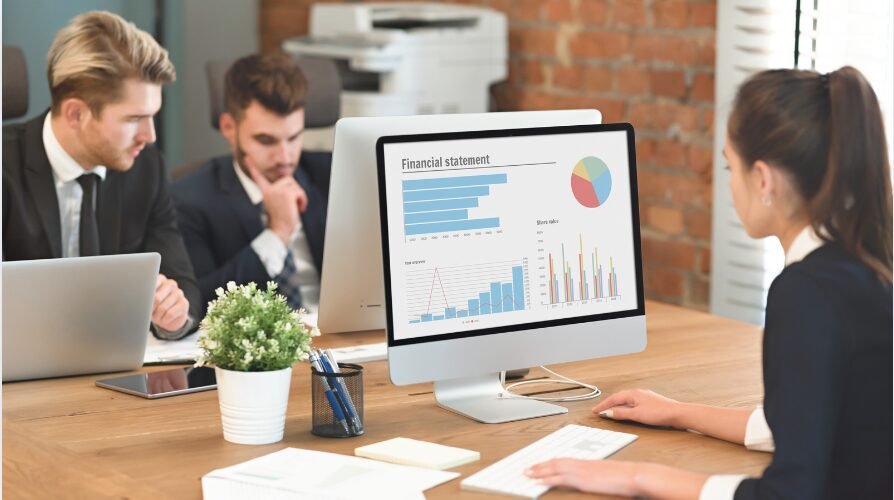Personal finance can be stressful, and it gets even more complicated when you have to decide between a personal loan or a credit card. Both options have their strengths and weaknesses. However, it is critical to comprehend how they differ to make prudent financial choices. It’s often good to have the right strategy whenever there’s a need to buy something costly, consolidate debts, or manage expenditures. Let us then examine the primary differences that make these two forms of finance unique so that you can choose the one that best meets your requirements!
Personal Loan vs Credit Card
When talking about personal loans and credit cards, one is quite different, which is important to note. Once you take a personal loan, a specific amount of home equity in cash is disbursed with the expectation of being repaid over a few months or years with interest. In this way, one can plan how to spend.
By contrast, credit cards allow a person to spend within a specific amount but with great flexibility. Even so, a person must make some monthly payment to ensure that the account remains in good standing. This can be useful in the case of recurring expenditures.
The interest rates further explain the distinction between the two options, as there are wide gaps. A personal loan is lower than a credit card in terms of cost, especially if one has a high credit score.
Again, both are forms of borrowing that do not require collateral. However, their functions are different and serve different ends about the financial objectives of the borrower. It’s important to be aware of these differences and how they can shape your preferences regarding managing your finances.
When to use this option: when one can apply for a personal loan
A personal loan may be needed as it helps satisfy a large one-off cost when required. Some expenses, such as medical or home repair bills, among many others, are urgent, and a personal loan may come in handy.
This option should be taken when looking for predictable repayment terms. The amounts of money owed to lenders and the repayment dates are known in advance; hence, it is easy to plan and pay every month. The cost of personal loans is, constan,t since the interest rate accrues on a margin.
In addition, one can secure a better rate of interest than through other avenues of borrowing, which can mean less cash spending in the long run.
For debt consolidation purposes, personal loans can also be mentioned to work for them. Relating several high-interest debts into one single payment that is easily manageable provides comfort and sometimes better cash flow.
More: What Is Credit and Why Do You Need It?
Pros of Personal Loans
Personal loans come with various benefits and can fit different people as per their financial needs. One such benefit would be fixed rate interest, which simply means that your payment will remain the same every month, making it easier to work with in terms of planning.
Another advantage is that amounts under a personal loan are generally higher than those available when they go to the bank or take a credit card. When one has many expenses like reconstructing a home or hospital bills, the personal loan takes care of such needs in one go.
Also, there are many times when a personal loan is better off because it has a longer duration; hence, the monthly obligation becomes less. In some cases, they come across terms of two to five years or even longer.
Lastly, if the personal loan is taken and paid off on time, it can help increase score increase the good or excellent credit score. Making payments every month helps in the history and profile of that individual.
They are very flexible with every situation, whether planning a marriage or just paying a lot of credit cards or personal loans. They have no limitations on use and are, therefore, effective for every situation.
Related: Credit Card Companies In Australia
Cons of Personal Loans
Many advantages do come along with personal loans. However, there are some sites that mention that these loans may also have some drawbacks. One of them would be the interest rates. It could be ideal or quite high, depending on how one pays their credit.
On the downside, there is a limit to how much you can borrow. Personal loans are secured in a single amount, which may not be sufficient to meet all one’s needs. If you need additional assistance, there is a risk of more borrowing and debt.
In the same breath, personal loans also take much more time to be processed compared to credit cards. This lag may affect dependability if quick funds are needed amid a crisis.
There is always the potential risk of getting trapped in a cycle of debt, especially if the systematic monthly payments that are due remain unpaid. Late payments do attract fees and hurt one’s credit score, among other consequences.
When to use a credit card
Credit cards can offer several financial advantages as long as they adhere to proper usage. They act as great assets when making normal, frequent purchases since you gain points or cash back. For Fooncepting, fueling your vehicle, or even online purchases, credit cards come in handy in saving more as they provide a greater benefit than the opportunity cost.
They also guarantee ease of use and safety. Charged with very beneficial features that may include the ability to challenge charges and protect from fraud, there is absolutely no doubt that credit cards are much safer than cash.
For those who are fond of traveling, different types of credit cards offer different perks, such as free insurance and the ability to rack up points for flights and hotels.
Also, if you can clear the outstanding balance every month, using a credit card regularly improves your credit score over time as it depicts responsible borrowing.
Nonetheless, caution is advised regarding the spending amounts one is allowed to have on their card. It is not, in other words, only about extending credit— if done correctly, having a credit card can also be about managing your money more efficiently.
Credit card advantages
Credit cards have the added convenience, which is preferred by a large number of consumers. You can buy something even when you do not have the actual cash in hand, which is useful in emergencies or sudden costs.
Another big plus is that you can earn rewards. Credit cards often have benefits such as points, cashback or travel perks. It means that for every dollar spent, something can be gained in return.
Another advantage is that there is a high level of convenience. By using a credit card, carrying large amounts of cash is unnecessary. Instead, physically or virtually, purchases can be made safely and efficiently.
Also, responsible usage of credit cards helps people easily grow their credit score. Payments made on time enhance the credit report for users, enhancing their wellbeing.
Some cards have additional protection features such as fraud detection and insurance purchase. These safety features provide comfort while performing transactions when shopping around the world.
Credit card cons
There is no doubt that credit cards serve their purpose well, but with their advantages come some disadvantages, too. One of the major cons is the average interest rates, which happen to be higher! Those rates can add up pretty fast if you decide to keep a balancehere is also a risk of overspending. Since it only takes the swipe of a card to make a purchase, this can lead to people buying things they may not be able to afford. This can occur as impulsive buying, which can burden someone financially.
Furthermore, there may be some underlying costs associated with credit cards. Annual fees, fees for late payments, and international transaction fees can surprise most users and increase expenses without warning.
The dependence on credit cards can pull down credit scores if not managed appropriately. A person’s financial well-being may be affected heavily due to high usage levels or not keeping up with payments.
How personal loans and credit cards are similar
Regarding financial tools, personal loans and credit cards are pretty much similar in that they help solve problems. Who wouldn’t want money when they need it? Everyone does! This is why both aspects are great: they can come in conveniently whenever there are unplanned events or for large purchases.
The other thing that is a bit more shallow is the requirement to process an application. In the case of personal loans or credit cards, it is common for lenders to perform a credit check in most circumstances. Your credit history is extremely important as it helps decide if you fit the description and the percentage rate.
Additionally, both types of financing often lack security, which means there is no need for collateral such as a house or a car. This makes them easier for many borrowers for whom pledging assets is not an option.
Responsible management of either option certainly should affect your credit score in the long run as payments are made promptly and per agreement.
Decision of application
With personal loans and credit cards, there is quite a distance regarding the application process. You make a more formal application, including submitting documents showing your income and financial history in the case of a personal loan. There is usually a lot of due diligence done before approval.
On the other hand, getting hold of a credit card entails a lot of simplicity. Even kingship requires less documentation, even though it is not centralized.
However, this ease of call does not always indicate instant approval. Both applications use credit scores, and the criteria vary depending on the lender.
Let the current financial status of the US dictate what decision you will make here. Should the reasons be several larger sums with fixed payments over a given period, then personal loans would be the way to go. A credit card would likely be more suitable if the focus is access to smaller amounts over a timeframe and on a revolving line of credit.
Unsecured funds
Unsecured funds are funds that are used to borrow something without any collateral. In other words, there is no need to use tangible assets such, has a car or house to secure a loan, Most of the time, such loans include personal loans and credit cards. From the lender’s perspective, in the case of an unsecured loan, the borrower’s creditworthiness is considered instead of a physical asset that the borrower holds.
So, if you do not repay, you cannot surrender any particular asset, and your credit score will be negatively affected. This kind of financing allows individuals to use the funds as they see fit, whether for debt consolidation, an emergency, or any major purchases. However, in comparison to secured loans, there would be higher interest rates on unsecured loans because the lender is exposed to greater risks.
It is also important to understand distinguishing between personal loans and credit cards. Understanding these financial instruments allows the borrowers to make appropriate decisions that suit their circumstances. How credit affects your credit: It is also important to note how credit affects your credit score when applying for loans. Each lender scans your credit history when you get a personal loan or credit card. Such information can be detrimental to your rating as it sometimes lowers it.
Credit utilization also matters as much as the other factors discussed. Using a percentage of your credit limit that is too high indicates you might be overstrained. As such, it is important to maintain this ratio as low as possible.
As for the other option, your credit health will improve if the payments towards either are made consistently and on time. Creditors appreciate responsible borrowing, and such customers are rewarded with higher scores and time.
Furthermore, holding some revolving accounts along with loans may benefit your score if managed properly. Managing these factors well would enable you to establish good financial credibility over time.
Debt consolidation using a credit card or a personal loan
In the case of debt consolidation, both personal loans and credit cards can be utilized. Both of these have their benefits depending on the circumstances at hand.
These loans disburse a specific amount to settle several several debts at once. Such a plan is often fixed, making budgeting easier, and lower interest rates can also be expected compared to most credit cards, especially for those with good credit standing.
With balance transfer credit cards, existing debt can be transferred to one card that may offer low or zero introductory APR, which is a great feature for saving money if the balance can be paid off before the rate becomes high.
Cautious with either option. The monthly payment with personal loans is going to be regular, or else there is a possibility that credit may end up spending carelessly with its use. It is provided that the selection corresponds to the discipline towards finances and repayment.
When to choose a personal loan
In such cases, it is more appropriate to choose a personal loan with a larger expenditure scalewith a larger expenditure scale. A personal loan can facilitate a major purchase, home improvement or medical expense planning.
Most of these loans use a fixed interest rate in addition to a specified amount to be paid monthly, Hence, in order to achieve better budgeting, this one helps in planning in the long run with a lot of certainty.
Try this option if you wish to combine debts with high interest rates. Personal loans are often much easier to repay than credit cards owing to their relatively lower interest rates.
Further, a personal loan may be useful if the objective is project-based finance where expenses are specific. It enables businesses to depend on extra funds and avoid borrowed bases that tempt over-expenditure with revolving credits.
If you are looking for an amount large enough and dislike using collateral, you may opt for a Personal Loan. The right one depends on the objectives concerning your finances and the amount you are willing to pay out each month.
When to choose a balance transfer credit card
While a balance transfer credit card is to be designed for use, timing and one’s expenses are also important considerations. For instance, if you have a balance on credit cards with a higher interest rate than the one charged on the new card with 0% APR for the initial months, transferring that balance would be useful as it prevents further accumulation of interest on the principal during the promotional period.
This option is perfect for those with moderate spending habits and can make payments during the interest-free period. This is also the case when a person is sure that they can pay enough amount that no further balances are accrued under the normal rates during the course.
On the other hand, it should be remembered that certain charges accompany balance transfers. Ensure these charges will not be greater than any advantages associated with lower interest rates. Looking at your existing debts will help you runrun your financials and strategies, including these options, if you intend to use them in the future.
Your choice between a personal loan or a credit card depends on several factors, such as your need, your ability to pay, and plans. Both options are valid, but knowing this will help them make better financial management choices.














